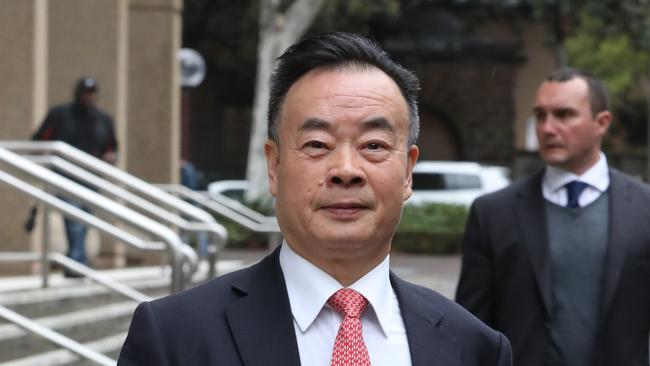Chau Chak Wing wins defamation suit against ABC, Nine
Australian-Chinese businessman awarded $590,000 as court rules ABC Four Corners, Nine defamed him over claims he was a spy.

Billionaire Chau Chak Wing has been awarded $590,000 in damages after he won his Federal Court defamation case against the ABC and Nine over an “indefensible” joint story that “besmirched” his reputation and “struck at the heart” of the businessman’s “good name.”
The Chinese-Australian philanthropist sued the ABC and Nine, the owner of the Sydney Morning Herald and The Age, over the joint investigation ‘Power and Influence’, which was broadcast by Four Corners in June 2017 and viewed by more than one million people.
Dr Chau, who has been an Australian citizen since 1999, argued the program suggested he had bribed a UN official and was acting as a double agent for the Chinese Communist Party.
In a judgment delivered on Tuesday, Federal Court Justice Steven Rares found the program conveyed a total of four defamatory imputations, including that Dr Chau knowingly paid a $200,000 bribe to a senior UN official and was a member of the Chinese Communist Party.
Dr Chau, who has donated more than $20m to both Sydney University and University of Technology Sydney, had argued the story carried six defamatory imputations.
Justice Rares said the media outlets “besmirched” the reputation of a man who “mixed with Prime Ministers” and “leading bankers” when it accused him of bribing political parties, the President of the General Assembly of the UN, and for being a member of the CCP.
“The four imputations struck at the heart of Dr Chau’s good name,” he said. “Dr Chau’s reaction bespoke a sense of deep public humiliation.”
Dr Chau had also sued over the program’s alleged suggestion that he had “betrayed” Australia “in order to serve the interests of China”, and had paid “corrupt” Chinese spy Sheri Yan to help him infiltrate the Australian government. However, Justice Rares ruled those imputations had not conveyed the defamatory meaning alleged by Dr Chau’s lawyers.
The media organisations denied the imputations were conveyed, arguing that the billionaire’s lawyers had “overcooked” their case in an “elaborate search for hidden meaning”.
In a joint statement, Nine and the ABC urged legislators to “enact defamation law reform” in order to “balance the playing field” and defend public interest journalism.
A spokesman said the media outlets were “deeply disappointed” by the decision, and believed it would have a “further chilling effect on media freedom.”
“This case has again starkly demonstrated fundamental problems with Australian defamation law and pre-trial procedures being heavily skewed in favour of a plaintiff,” he said.
Justice Rares said concerns raised by Sydney University over Dr Chau’s donations and the decision to name a new museum after him were “clear” examples of the “very kind of damage” that the imputations were “calculated to convey.”
He said it is “no small thing” to be accused by two large media organisations on the ABC of bribing the President of the United Nations, of making donations in Australia as bribes to political parties to serve the interests of China, and of being a member of the CCP.
“The imputations struck at the core of Dr Chau’s previously high reputation for integrity, philanthropy and the promotion of a positive relationship between Australia ... and China.”
At trial, the ABC and Nine were accused of failing to restrain their “tabloid instincts” by resorting to “hokey, sinister music” and “darkened screens” to convince “small-minded” Australians that the billionaire property investor was an “international man of mystery.”
The Chinese-Australian businessmen, who gave evidence in October via an interpreter from Guangzhou, China, said the “made-up” program had portrayed him as a “very corrupt businessman” who attached “requirements” to political donations.
“I have done so much for Australia,” he said at the time. “I don’t have any personal agenda, nor do I ask for anything back.”
In a statement, Dr Chau’s lawyer Mark O’Brien welcomed the verdict.
“Dr Chau is very pleased to have his reputation restored after such a baseless attack by Nick McKenzie and Four Corners,” he said.
Dr Chau has previously brought defamation proceedings against The Daily Telegraph in 2016 and a separate case against the The Sydney Morning Herald over a 2015 article in which he won $280,000 in damages.
The ABC and Nine said they would review the decision.


